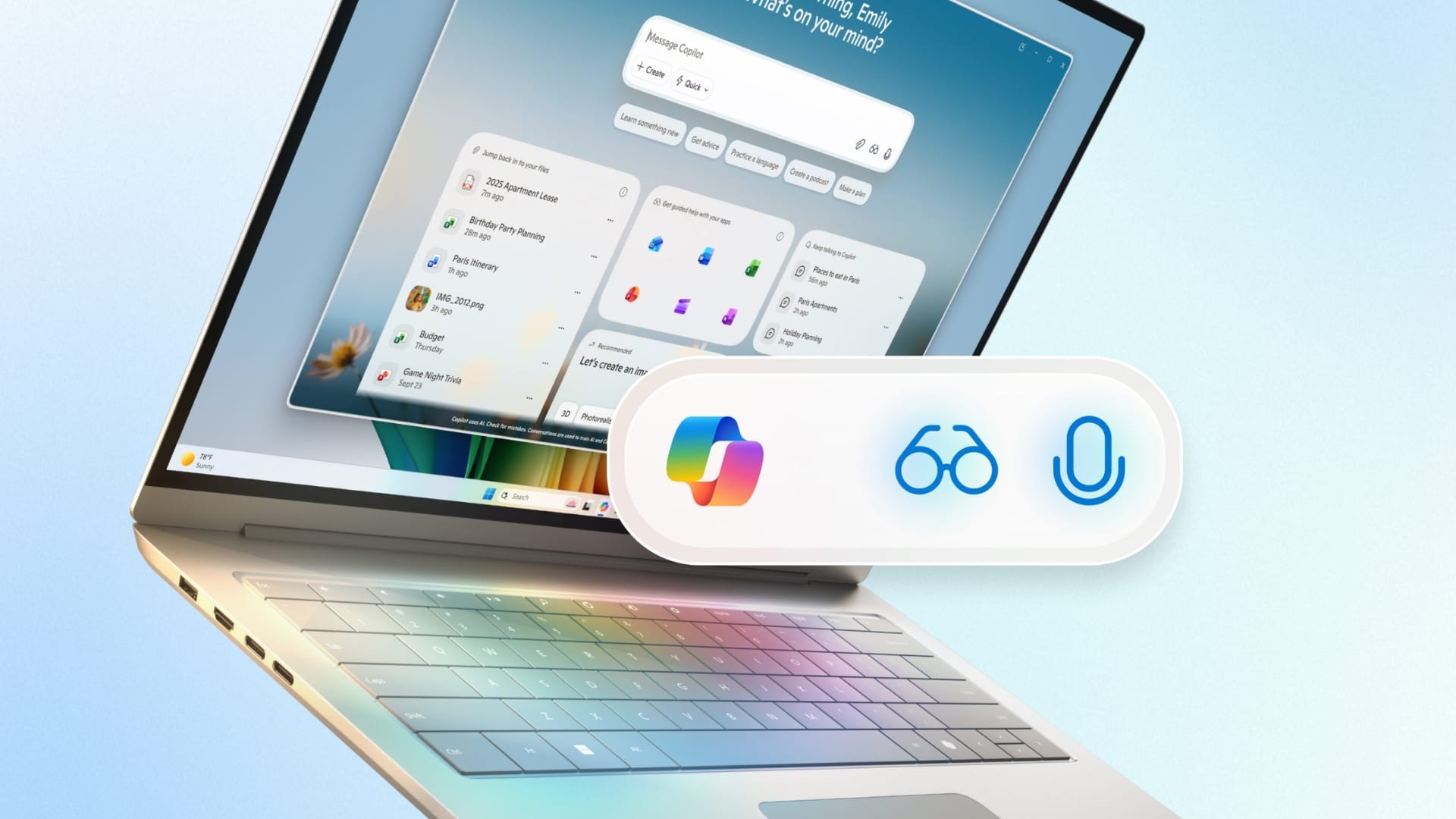Microsoft brings AI to every Windows 11 PC with new Copilot features
Microsoft’s latest Windows 11 update brings Copilot AI to every PC, adding natural voice interaction, automation, and enhanced security.

Microsoft is introducing a major update to Windows 11 that brings advanced artificial intelligence capabilities to every PC, placing its Copilot assistant at the centre of the experience. The update aims to make AI more accessible by embedding it directly into tools and features people already use daily.
Table Of Content
The company’s vision for an AI-powered PC centres on three core capabilities: the ability to interact naturally using text or voice, the ability to see and understand on-screen content to offer relevant support, and the ability to take actions on behalf of the user. All these functions are designed with user permission and security as priorities.
“Until now, the power of AI has often been gated behind your skill at prompting,” said Yusuf Mehdi, Executive Vice President and Consumer Chief Marketing Officer at Microsoft. “The shift to conversational input will be as transformative as the mouse and keyboard in unlocking new capabilities on the PC for the broadest set of people.”
With 68% of consumers using AI to support decision-making, voice input is becoming more common. New features like Copilot Voice and Copilot Vision make interactions easier. By saying “Hey Copilot,” users can now activate the assistant hands-free. With permission, Copilot Vision can analyse what’s on the screen to provide suggestions, guide users through new apps, and offer step-by-step instructions. Early adopters have used it for everything from troubleshooting settings to mastering editing tools.
Expanded Copilot capabilities across Windows
Copilot Voice now includes wake and goodbye words, enabling users to start or end conversations more naturally. Once enabled in the Copilot app’s settings, saying “Hey Copilot” triggers a microphone icon and chime to indicate the assistant is listening. Conversations can be ended by saying “Goodbye,” tapping the ‘X,’ or simply leaving it idle.
Copilot Vision, now available globally, adds several new capabilities. Full desktop and app sharing lets Copilot analyse content, offer insights, and coach users aloud. The Highlights feature shows users how to complete tasks directly within apps, while deeper integration with Word, Excel, and PowerPoint allows Vision to understand entire documents, not just visible sections. A new text-based mode will also allow users to interact with Vision without using voice.
The update will also bring a redesigned taskbar with a new “Ask Copilot” feature, making the assistant more integrated into everyday workflows. With one-click access to Vision and Voice, users can search faster and get results instantly without granting Copilot access to their content.
Microsoft is previewing Copilot Actions in Copilot Labs, extending AI actions beyond the browser to local files. This experimental feature can automate tasks like sorting photos or extracting data from PDFs. Users can describe tasks in plain language, and Copilot will attempt to complete them while keeping users informed of progress.
New Copilot connectors allow integration with services such as OneDrive, Outlook, Google Drive, Gmail, and Google Calendar. Once connected, Copilot can retrieve and understand personal content across platforms. It can also export responses directly into Word, Excel, or PowerPoint and guide users to specific Windows settings with natural-language queries.
New AI tools and agentic capabilities
Microsoft is also introducing Manus, a general-purpose AI agent capable of completing complex tasks directly from File Explorer. For example, it can generate a website from documents on the device with a simple right-click command. Manus can also function as a standalone app, building websites from local files directly within a chat session. The tool uses Windows’ Model Context Protocol to fetch files securely and operate in the background.
A new AI action in File Explorer will allow users to edit videos seamlessly with Filmora, while integration with Zoom will make scheduling meetings as simple as hovering over an email address.
For gaming, Microsoft is partnering with ASUS on the ROG Xbox Ally and Ally X handheld devices. Players can now use Gaming Copilot for in-game recommendations, tips, and support without leaving their game. Pressing and holding a button opens a chat with the AI sidekick, enhancing gameplay experiences.
Security, upgrades and the future of AI PCs
Security remains central to Microsoft’s AI roadmap. Windows 11 is described as the most secure version yet, with multiple layers of protection enabled by default. Copilot Actions is turned off by default, and users retain full control, visibility, and oversight of what the assistant does. Sensitive actions may require explicit approval, and features will roll out gradually following extensive testing.
With support for Windows 10 now ended, Microsoft is encouraging users to upgrade to Windows 11 PCs, which are faster, more secure, and built for AI-driven experiences. Copilot+ PCs come equipped with a neural processing unit (NPU) for more advanced AI tasks.
Manufacturers including Acer, ASUS, Dell, HP, Lenovo, Samsung, and Microsoft are launching a range of Copilot+ PCs. Models include the Acer Aspire 14 AI (starting at US$699.99), ASUS Vivobook 16 (from US$799.99), Dell 14 Plus (from US$799.99), HP Omnibook X Flip (from US$1,199.99), Lenovo Yoga 7 2-in-1 (from US$749.99), Samsung Galaxy Book4 Edge 16 (from US$1,499.99), and Microsoft Surface devices (from US$799.99). These systems offer features like extended battery life, powerful processors, and enhanced AI performance.
Microsoft’s aim is to transform the PC from a simple tool into an intelligent partner. With Copilot and new AI-powered capabilities, every Windows 11 device can deliver a more intuitive, personalised and productive experience.
















